
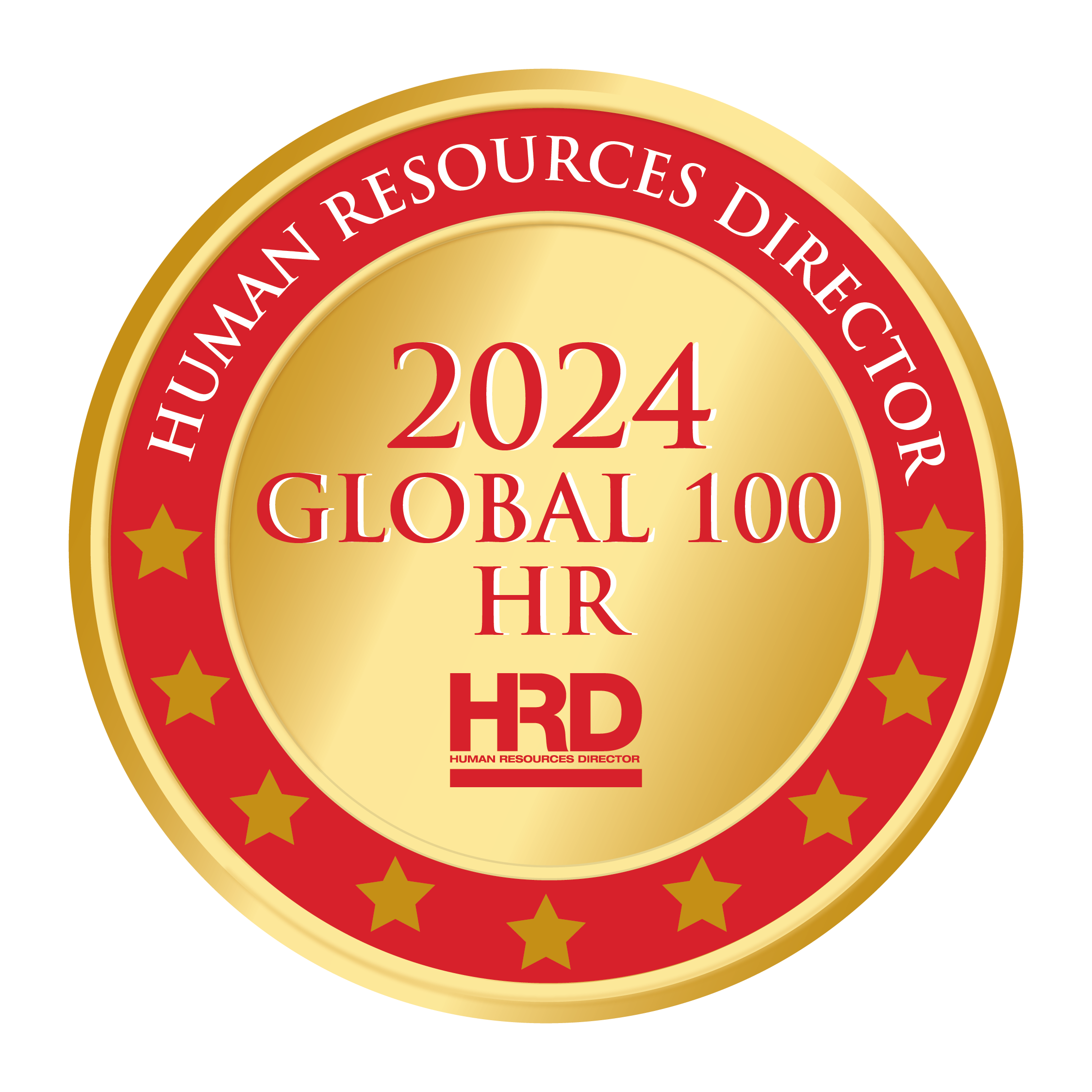
Jump to winners | Jump to methodology
There’s been a series of challenges for the world’s HR leaders to navigate over the past 12 months, magnified by the lowest global unemployment rate for the last 20 years, changing demographics, and more than 75% of companies struggling to find the right people with the right skills for open positions, according to Drake Star’s Global HR Report Q1 2024.
“HR leaders have adapted to remote work, managing employee wellbeing and mental health and addressing diversity and inclusion issues,” says Megan Gallagher, senior consultant – legal and HR at recruitment firm Robert Walters. “The most successful HR leaders have tackled these challenges by implementing flexible work policies, enhancing communication and collaboration tools, providing mental health support resources and prioritising diversity and inclusion training and initiatives. These measures have helped create a supportive and inclusive work environment.”
Helen Coult, regional president for recruitment specialists Armstrong Craven, underlines one challenge that unites HR professionals worldwide – the management of hybrid working.
“It's difficult to make that different for different countries or locations, because it should really be a blanket global policy or for different skill sets within that. For example, tech talent may prefer hybrid or remote working, whereas HR and sales talent or some manufacturing roles have to be there,” she says. “It’s difficult to culturally implement multiple different policies across different skill sets and different locations, and I think work from home is still a big question mark.”
In addition, the leading HR leaders have also overseen budget constraints, restructuring and talent retention issues by working closely with senior business leaders to design and implement strategies that support both the business and employees.
Margaret Cowx, director of HR advisory services at McLean & Company, says, “They need to be a strategic thinker who is aligned with the organisation’s top priorities while being a driver of innovation, change and continual progress. They also need to be authentic, inspiring and empathetic.”
HRD’s team undertook in-depth research to compile the Global 100 list, selecting those professionals for their outstanding commitment to their companies and their people over the past year.
Now in its fifth year, HRD leverages its unique position as a true global publication, reaching six different markets – the US, Canada, Australia, New Zealand, Asia-Pacific, and the UK – to finalise this formidable list of the biggest names in HR.
Not only do their geographic locations pose demands for the Global 100, so do their various industries.
“For instance, the technology and finance sectors have focused on employer branding and competitive compensation to attract top talent. Meanwhile, the manufacturing and construction industries have addressed workforce shortages through training programs and partnerships with educational institutions,” explains Gallagher.
“Top HR professionals have tailored their strategies to combat these industry-specific challenges by emphasising employer branding, forming strategic partnerships and implementing targeted talent acquisition and development initiatives.”
Mercer’s 2024 Global Talent Trends Report showcased what matters to C-suite leaders. Those on HRD’s Global 100 led in those initiatives and have implemented programs dedicated to them across their organisations.
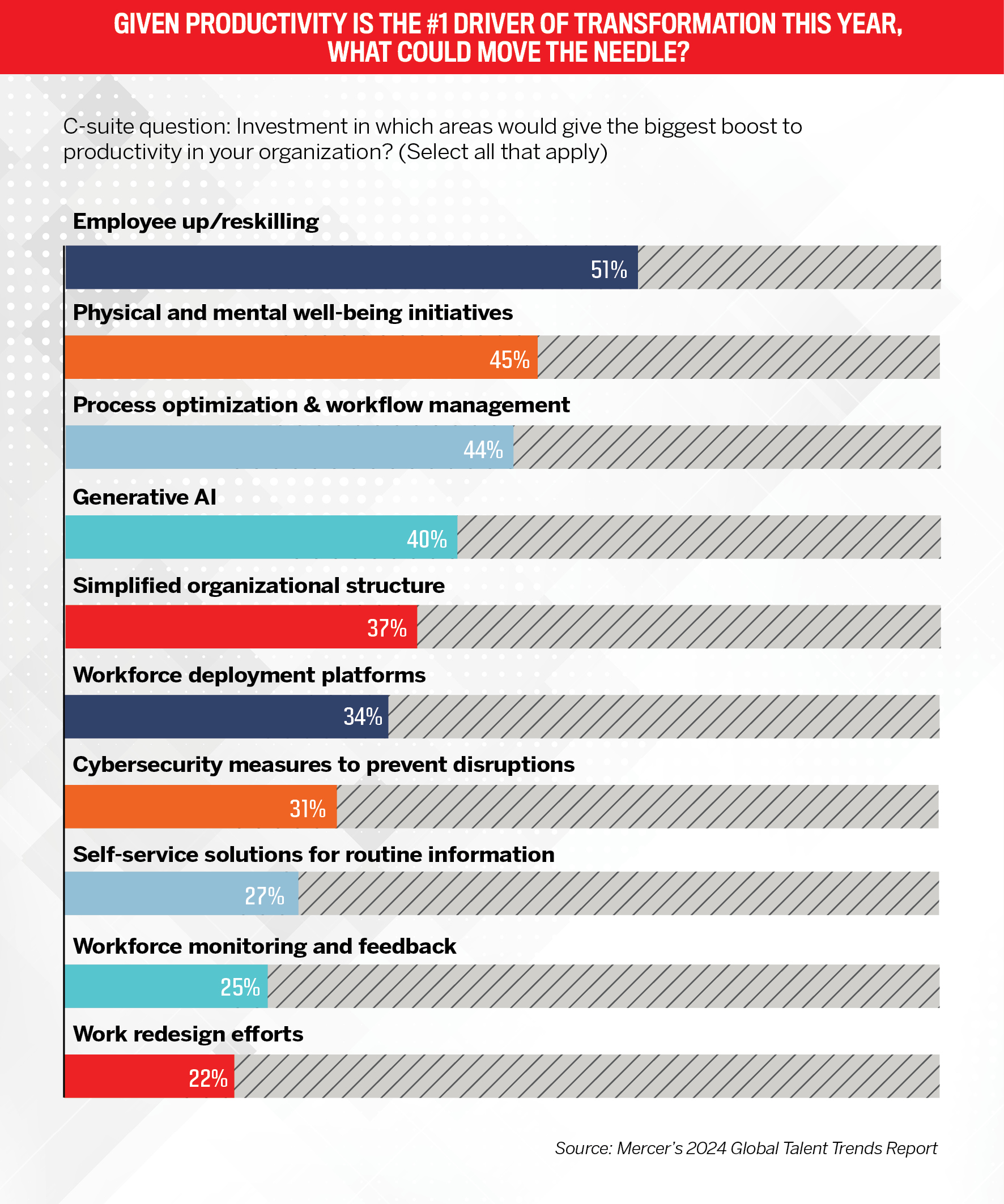
These drivers are echoed by Cowx, who explains how the Global 100 navigate them.
She says, “The need to successfully lead and implement change and to leverage technology are clearly linked, largely driven by the rapid pace of technological advancements and the rise of generative AI.
“Creating and maintaining a great employee experience continues to be a priority that requires focus and deliberate actions to support a positive experience. This is not project based, nor is it a one-time effort, but rather an ongoing focus.”
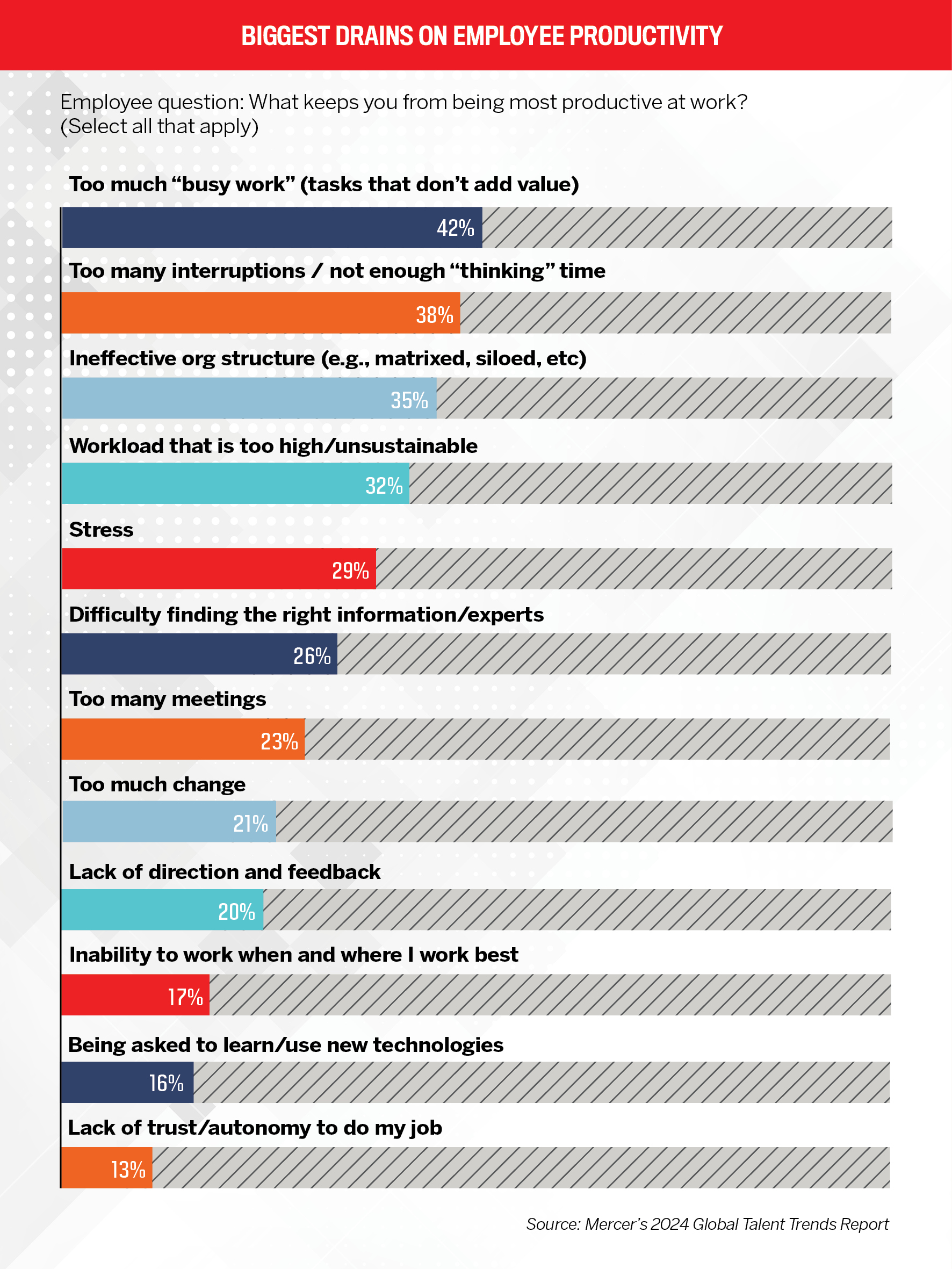
A strategic-thinking HR professional with over 18 years of experience working across the legal and financial services sectors, Scott is highly skilled in relationship building across organisations and teams.


Joining Coleman Greig Lawyers in 2022 during a period of high turnover, Trisha helped shift the firm's strategy to stay aligned with legal trends and target a younger demographic to stay competitive.
Specialising in organisational development and talent management, Dionysius is responsible for cultural, engagement, payroll, remuneration, performance and development programs.

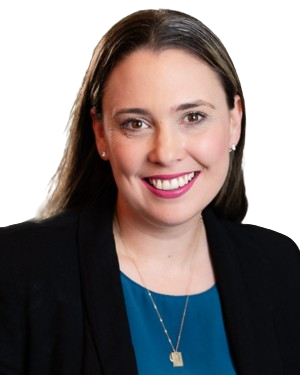
Her strategic HR skills have been recognised, with BAC awarded Best HR Strategic Plan, which she co-authored, as well as being a shortlisted finalist for the Best Learning and Development Strategy at the National HR Awards.
With over 25 years of experience, Harry is a commercially focused leader with a proven track record of empowering employees to excel. Her leadership has consistently driven improvements in both customer experience and business performance.


She joined the home improvement retail chain in 2021 to lead a team delivering communications, health, safety and wellness, business partnering and learning and development (L&D). During her tenure, the company has modernised the people experience under the banner of its employment brand “We’re Family”.
BambooHR found that 87% of executives and HR professionals said company culture significantly supports their business goals, and 94% felt it was important to their organisation’s success.
Some of the benefits include:
increased revenue and profits
higher productivity
greater employee satisfaction and engagement
reduced turnover and associated recruiting/training costs
heightened creativity and innovation
improved customer experience and satisfaction
Scott works closely with Coleman Greig’s board of directors to increase staff engagement.
“If you have a great culture, people are happy to come to work and give us their time. If you don’t, you would have a high turnover because you’re not offering anything,” she says. “I make sure that we offer the ‘nice to haves’ to employees but also ensure that our rewards, remuneration and benefits are on par with our competitors.”
When it comes to recruitment, Scott selects candidates to fit Coleman Greig’s culture.
She says, “Besides having the skillset needed to be a lawyer, we conduct cultural fit assessments. We want team players, not only in the firm but outside, partaking in social events with the team, because that’s our culture.”
Dionysius has based tangible values at Brisbane Airport on four pillars:
collaboration
communication
courage
care
During the pandemic, Brisbane dropped from 50,000 daily passengers to 200. The aftermath drove Dionysius and her team to go back to basics.
“It made me realise that I am incredibly resilient. From a HR point of view, we had to make decisions that were unprecedented. We didn’t get everything right, but every decision we made was in line with our values,” she says. “It had us in good stead heading into the future.”
To have a robust culture, firms must have a welcoming workplace.
Gallagher believes that by fostering an inclusive environment, organisations can:
build a diverse talent pipeline
retain top performers
enhance employee satisfaction and loyalty
“This holistic approach ensures that DE&I initiatives are integrated into the fabric of the organisation, driving long-term success,” she says.
This has been implemented at Coleman Greig to support inclusion and equity.
“We have a lot of LGBTQI+ staff, so we celebrate Pride and run events around that,” says Scott. “We are also very respectful of other cultures and communities because Parramatta in NSW is a multicultural area, and we also allow people to take time off for religious ceremonies.”
Under Scott’s leadership, Coleman Greig ensures equal pay for the same role.
She says, “We feel that men and women should get the same entitlements; we’re very gender neutral. That’s even with regards to parental leave, as well as promotions.”
L&D has become increasingly important, as it allows companies to upskill and motivate their workforces.
“It allows organisations to build a talent pipeline, retain top performers and enhance employee satisfaction and loyalty,” Gallagher says. “HR leaders should focus on creating a culture of continuous L&D by providing opportunities for skills enhancement, offering mentorship and coaching programs and aligning development plans with individual career aspirations.”
Over the past 18 months, Dionysius helped launch a new L&D program at BAC comprising three main units:
leadership
elevate
altitude
“Coming out of COVID-19 to keep our organisation alive, we needed incredibly strong and consistent leadership. We used the real-life scenarios in the workplace for leadership training,” says Dionysius. “It has really helped us develop our people.”
Their professional and technical program focuses on employees from specialised backgrounds.
Dionysius says, “It provides pathways for engineers, scientists and technical experts, with traditional coaching, supporting their formal studies and external training courses and conferences.”
BAC’s in-house program, Elevate, helps technical experts gain enterprise knowledge by covering topics such as:
enhancing personal brand
effective communication
influencing commercial business
Altitude, geared towards BAC’s high performers, is intensive development in the commercial aspect of the business.
“They are given a real-life business problem to solve. On top of that, we believe self-awareness is key to success, so we put them through Hogan psychometric assessments with a coach who debriefs them,” Dionysius says. “They find out what their style is and how they respond to situations.”
HR expert Cowx underlines and stresses how leaders have a disproportionate impact on business and people, which can be positive or negative.
She says, “Therefore, it is critical that organisations take the time to define what great leadership looks like and then support the development of those skills and attributes in their leaders.”
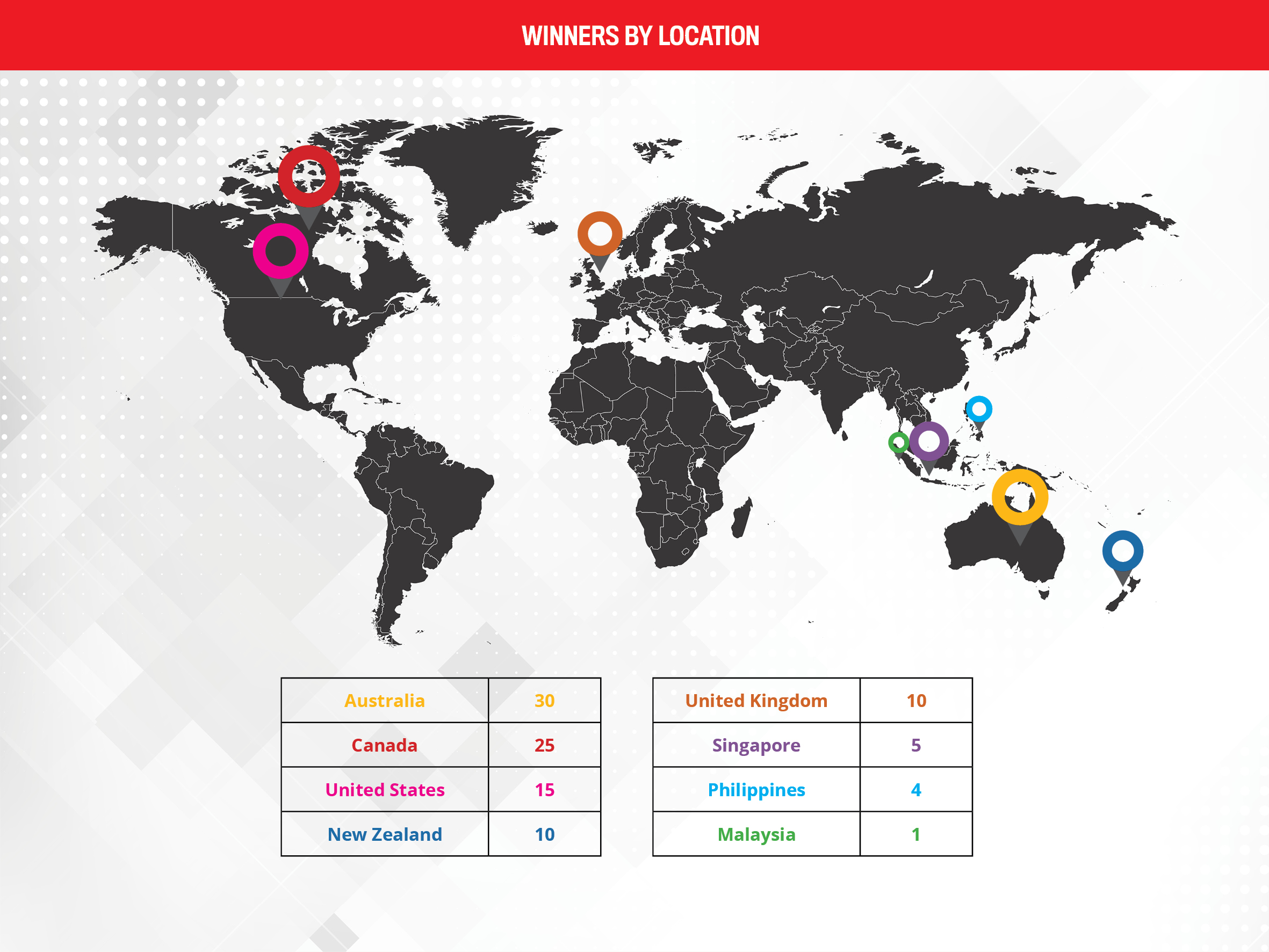
In this vein, Scott is also passionate about internal employee development, empowering them with support and advice to the directors and team leaders. She is creating a social committee, lunchtime sports teams, mentoring, cadetship program involvement and participation in charitable events such as Movember and R U OK? Day, along with lunch and learning presentations for junior staff.
“We recently hired a learning and development advisor to sit alongside me. I also coach team leaders on how to deliver hard messages in a sensitive manner when it comes to performance management reviews,” she says.
Spearheading a change in the firm’s onboarding process over the past 12 months has made a significant difference.
“I’ve made everyone accountable when someone new starts. I’ve seen instances where their team leader doesn’t show up to welcome them; they might be working in another office or working from home,” Scott says.
“I’ve made team leaders include that in their KPI components. The first induction can be a terrible experience for a new employee. I aim to make them feel welcome by getting the team to come to the office on that day and take them to lunch.”
Believing in openness and transparency, Scott encourages employees to share any workplace and personal issues.
She says, “We regularly conduct surveys where employees can give feedback, and we look to implement the improvements suggested. We have an employee assistance program, which is an outside organisation that staff can dial into anonymously and have a conversation if they are struggling.
“Staff are open to coming to me because they know I will take their issue to the board but keep it confidential. If they don’t want to disclose it, I look for other avenues to help.”
Responsible for Mitre 10’s organisational culture, Harry’s remit includes leadership, business partnering, internal communication, health, safety and wellbeing and people technology systems.
Thia has seen her lead in large-scale agile transformation, EX and CX transformation programs, culture and organisational change and mental health and wellbeing programs.
Harry collaborates across teams to deliver fit-for-purpose technology to enable all employees access to the right information to enable brilliant customer experiences.
Advancements in HR technology have boosted efficiency.
Coult picks out some platforms that stand out.
She says, “Seek is very useful, and AI-powered talent acquisition platforms like Webbtree pull in data from sources all over the web, so you can upload CVs, and it will come back with candidates. One of the challenges is deciding which to go with, and for example, one of my clients is using Microsoft Copilot, which has really improved her effectiveness.”
Data reported in Deloitte’s 2024 Global Human Capital Trends research recorded professionals’ feelings on how important it is to ensure that the imagination and curiosity of the humans in the organisations keep peace with technological innovation
73% recognised the importance
The global HR Tech market remains highly active, as reported by Drake Star:
approximately 200 transactions in Q4 2023
more than $3.5 billion total invested capital in the period
an expected $28.8 billion global HR Tech market volume for 2024
+13.4 % expected market growth CAGR until 2027
“When I first started, we used to have filing cabinets full of files for staff, but now that’s completely paperless. That innovation in the HR space allows us to streamline processes and focus more on the strategic part,” says Scott.
A prime example is how Scott leverages AI in the recruitment process.
She says, “I’ll put the job description into the platform, and it connects to SEEK and generates a shortlist of suitable candidates based on the plug-ins I have. If I want to schedule a meeting with candidates, the AI tool will do that. I still go and meet them face to face, but it saves a lot of time for me in the early stages.”
The need to be able to handle data and use it to make decisions is something that Leigh Caiger, practice lead of learning solutions at McClean & Company, highlights.
She says, “HR leaders and professionals must possess data literacy, as HR must be able to collect, interpret and act on quality data when making human capital decisions.
“We know that HR leaders and professionals must not only have the technical knowledge and tools to be effective in functional areas like HR strategy and talent management, but also be able to apply the right mindset and approaches when working across functional areas, such as developing programs and managing through change.”
And Coult feels the challenge of selecting the appropriate platform is a task the best global HR professionals have to master.
She says, “It's going to be a constantly changing landscape, and 2025 is going to be quite an exciting year because there is so much tech out there, not just for automation, but a lot of products that can drive efficiencies.”
The HR Global 100 report shines a spotlight on outstanding professionals who are making a positive difference and helping drive change across the industry.
Now in its fifth year, this formidable list of the biggest names in HR was put together by HRD, leveraging its unique position as a true global publication reaching six different markets – the US, Canada, Australia, New Zealand, Asia-Pacific, and the UK.
The HRD team collectively deals with hundreds, if not thousands, of HR professionals throughout the year for its daily newsletters, special reports and surveys, industry awards and events. This range makes the HRD team well-placed to tackle the intimidating task of whittling down the industry’s high achievers to just 100.
The leaders featured on this year’s Global 100 have been selected for their outstanding commitment to their companies and their people over the past 12 months. Across a myriad of industries and sectors, these HR leaders rose to the challenge, safeguarding their employees and helping the C-suite navigate a constantly changing landscape.
From accomplished academics to thought leaders to industry giants, this list is a tribute to those dedicated and passionate individuals who champion HR every day.